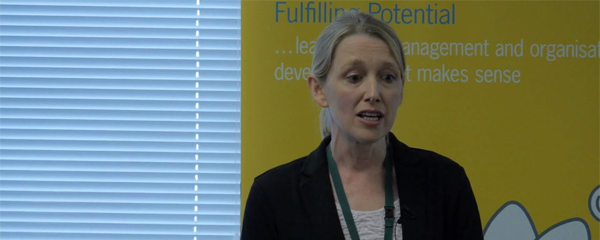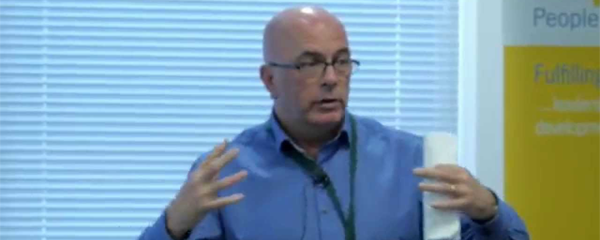Isabelle has experience working in local government, the civil service, the voluntary sector, and for her own organisation. In her current position as England’s chief social worker for Children and Families, she started delegating the decision-making as close to the frontline as possible, which included getting the organisation’s most junior members of staff involved.
“The best example of this, which was such a fantastic learning point for me, was about money,” says Isabelle. “We had heard for years that we give social workers responsibility for some of our most at-risk children and yet we won’t let them spend £20.
“In some of our evaluations that we did in our organisation, it was highlighted that it took one social worker an hour and fifteen minutes to get a bus fare for £1.15 approved and that’s how it is in a lot of places today.”
She continues: “We had to argue really hard with the authority to say, ‘You’ve got to give us delegated decision-making on money,’ and they thought we were insane. Giving social workers spending authority? All hell will break loose!”
They were eventually given permission to do it, which led to the development of what’s called the Sector 17 budget. And the outcome?
“We spent less with that budget than we had ever done in that service because when you give the responsibility to frontline practitioners, they know the story better than anyone about what needs to be spent and why.”
Related resources
- Click here to see more videos from Creating Happy Workplaces in the Public Sector 2017
- The Benefits of Happy Workplaces in the Public Sector, a blog by Henry Stewart about how happier, more engaged employees generate higher productivity and success in the public sector
- Are you as innovative as the Public Sector? In this two-minute video Henry Stewart underlines public sector innovation
























